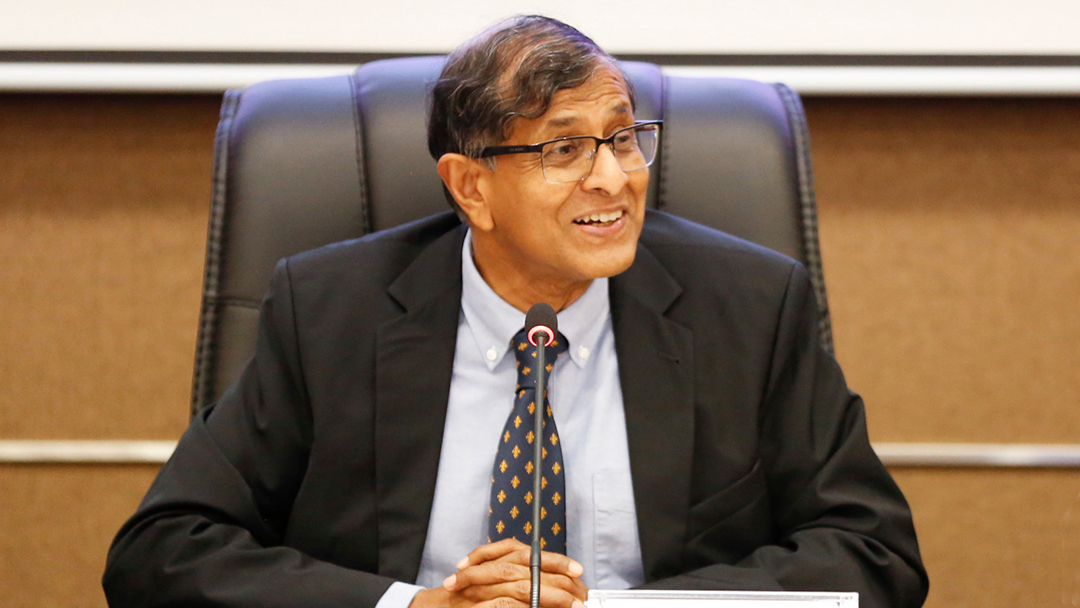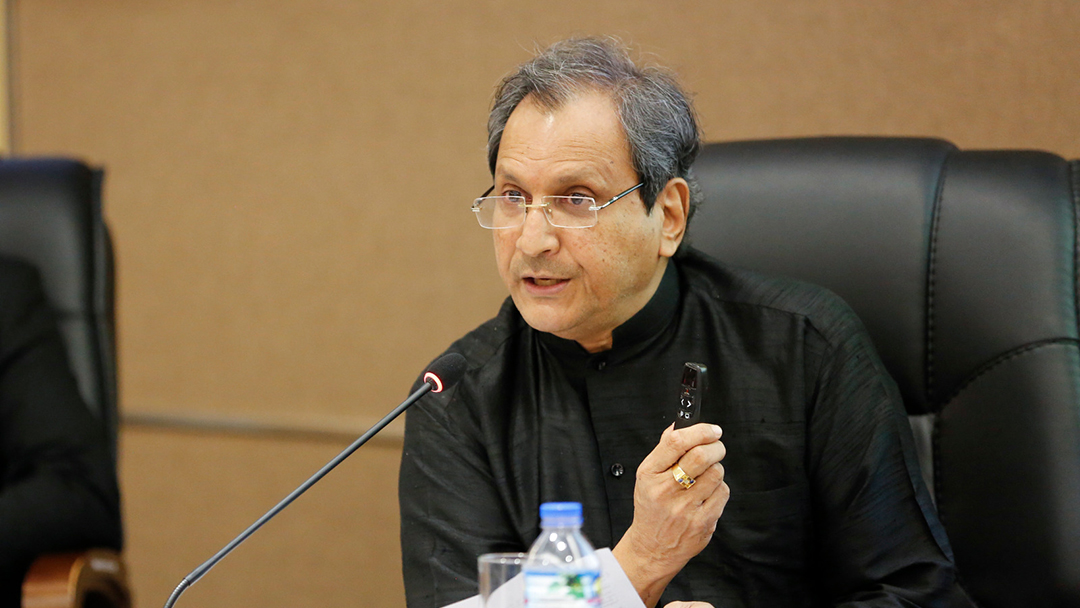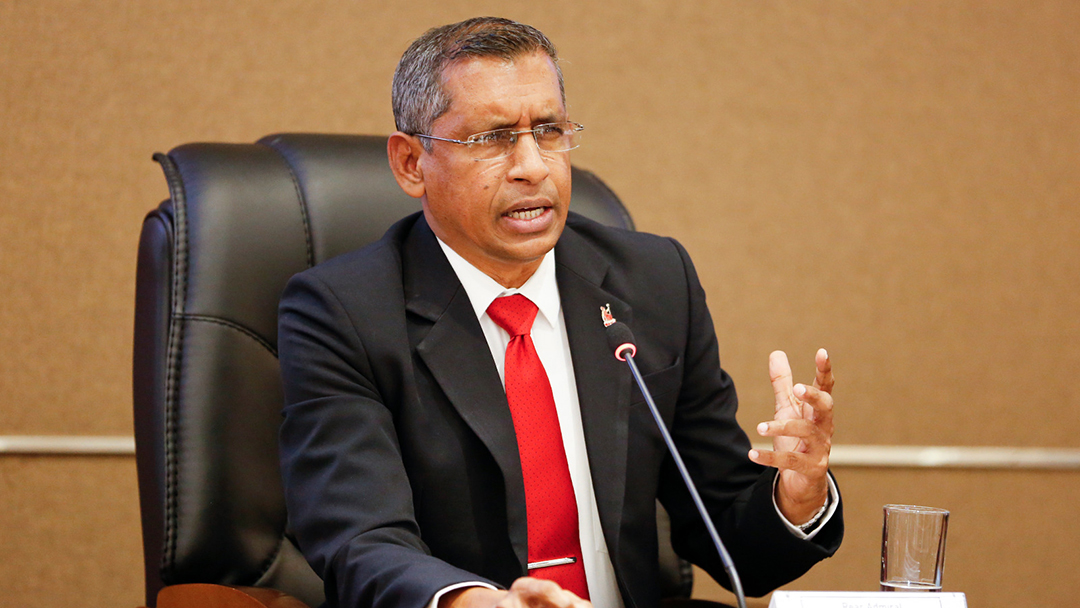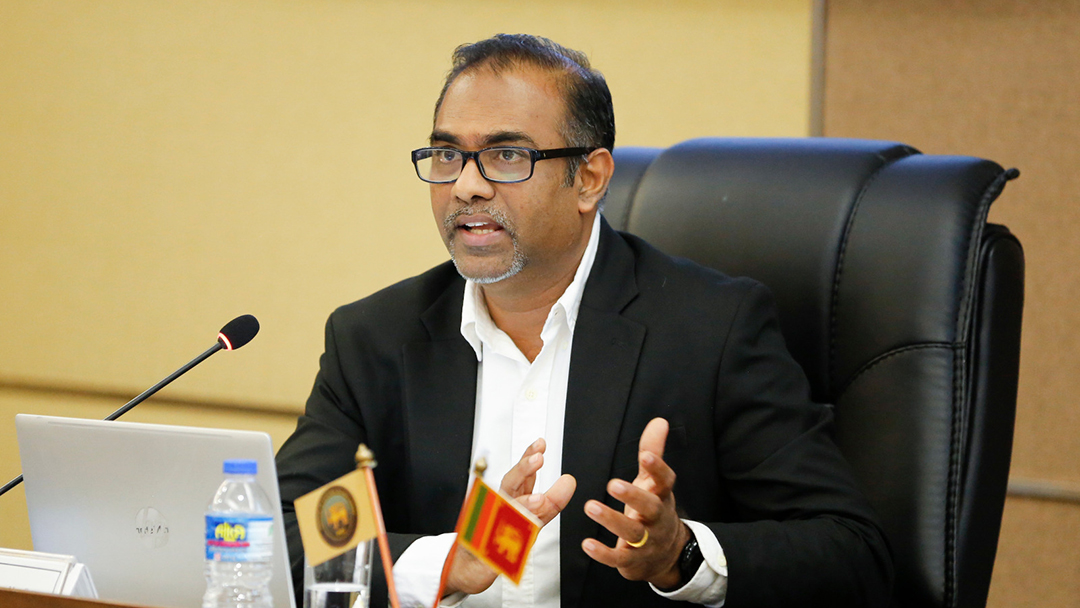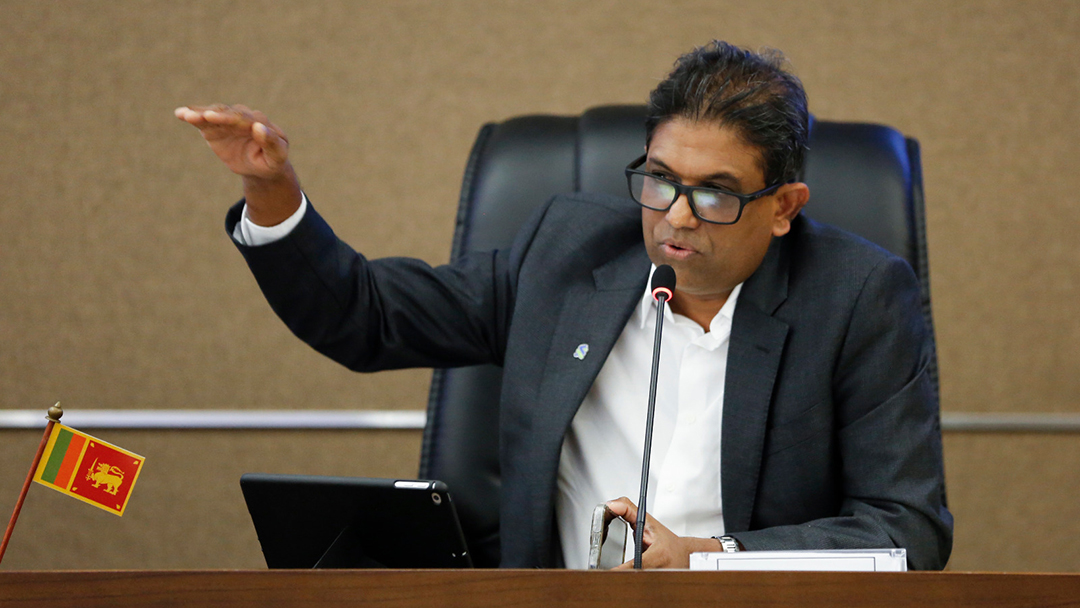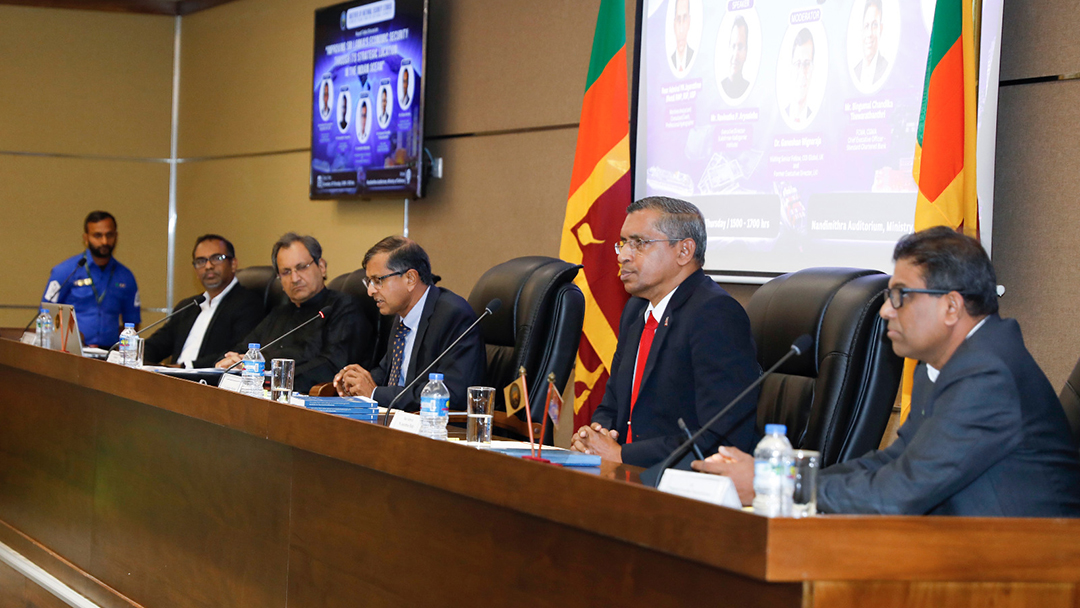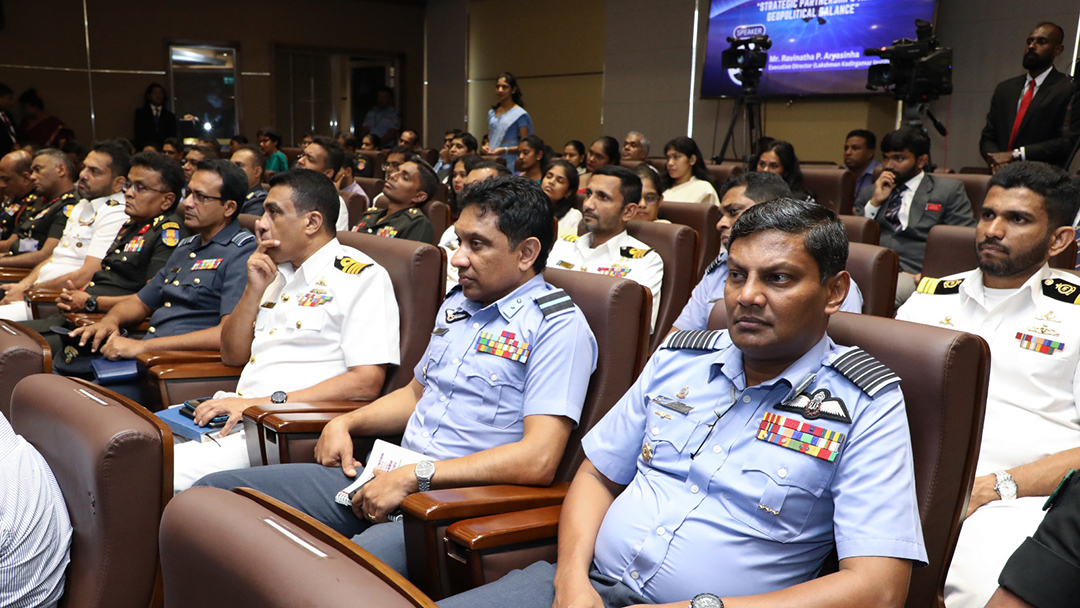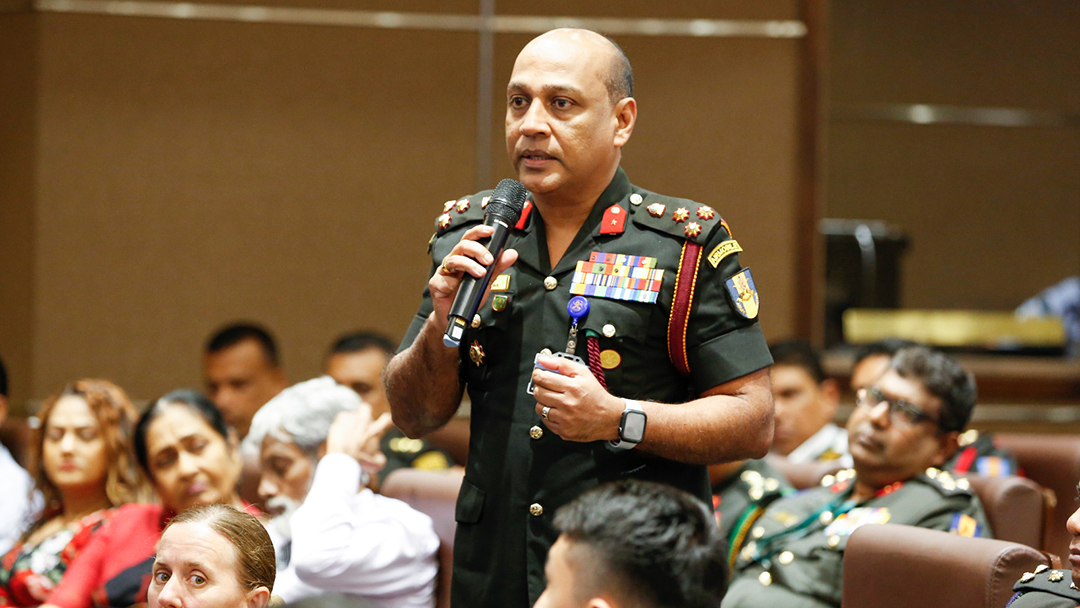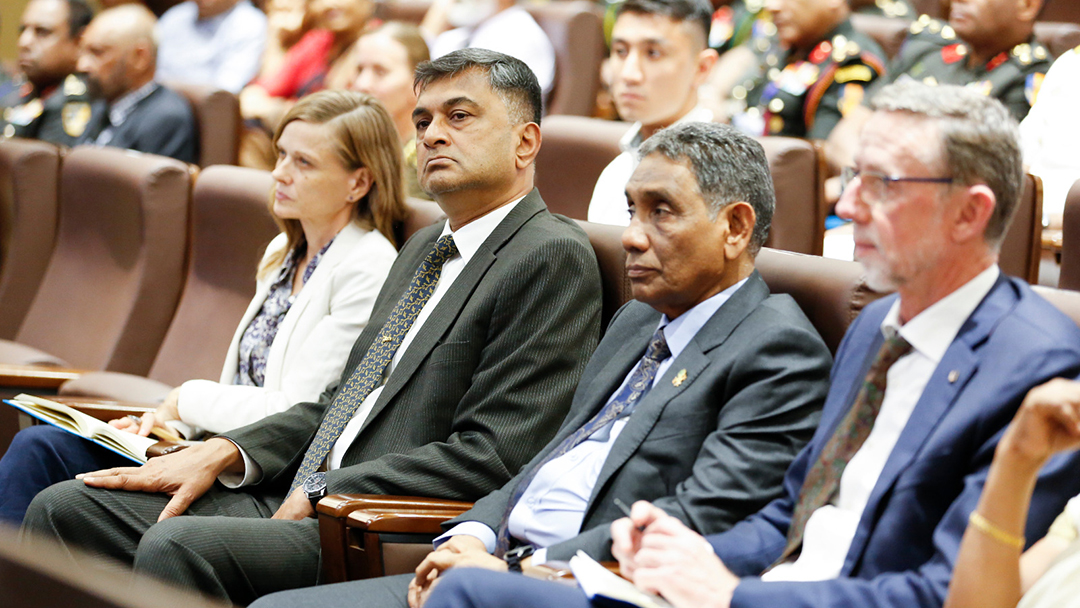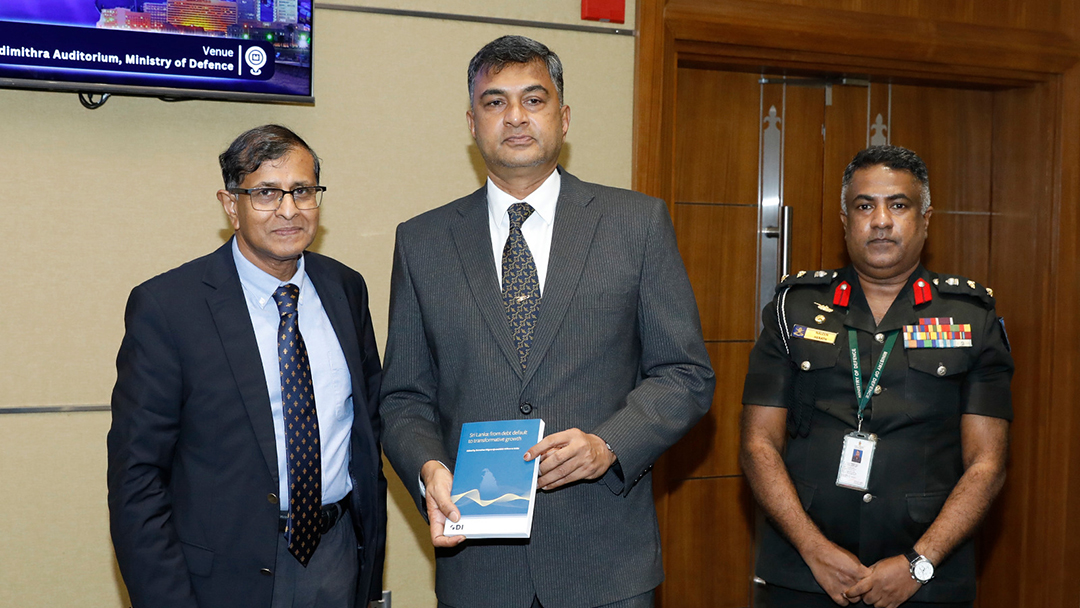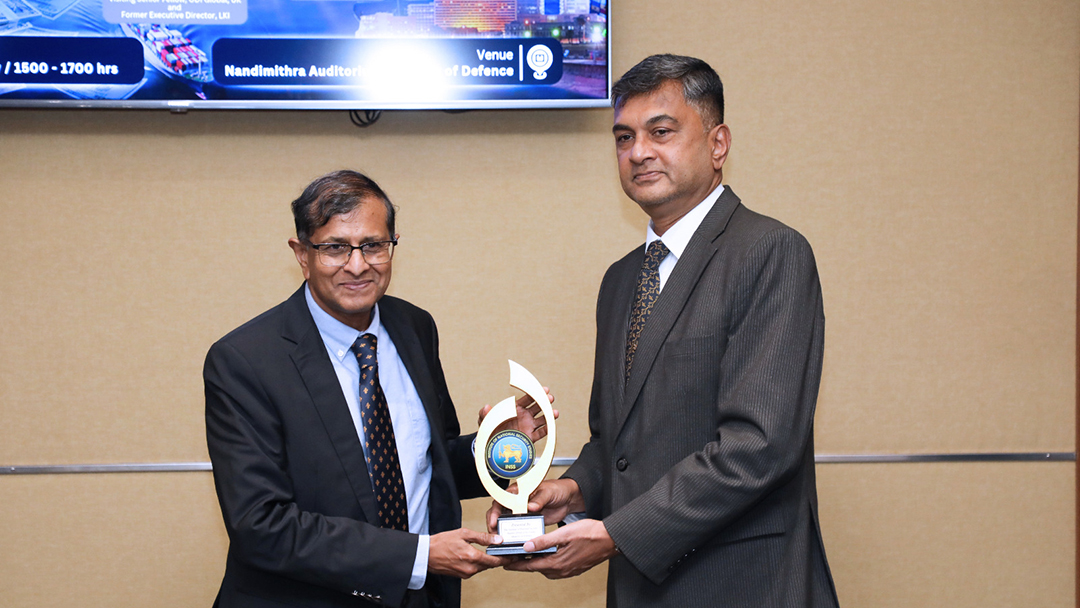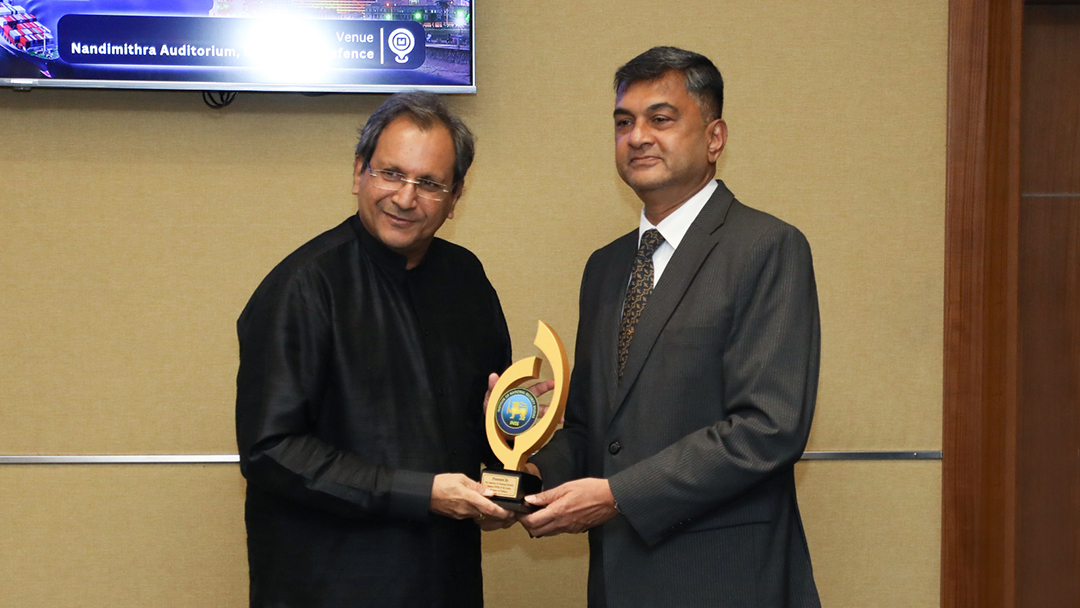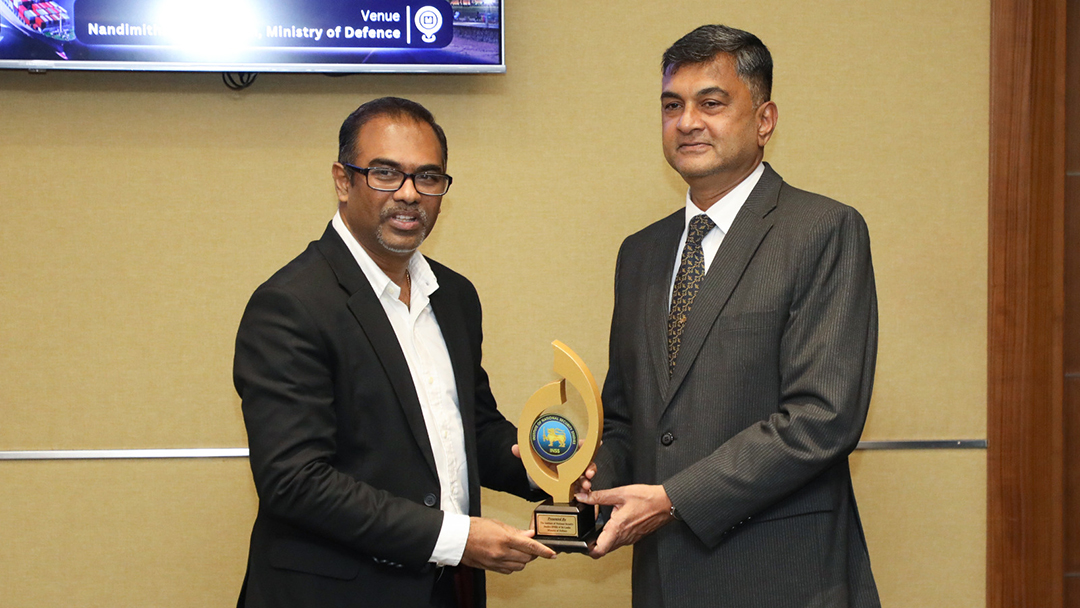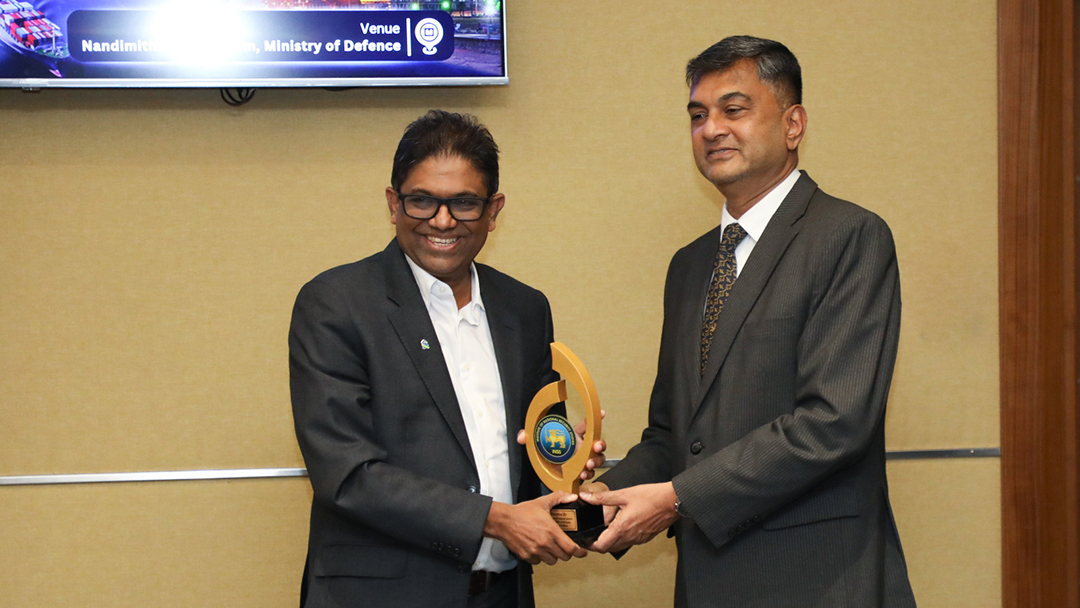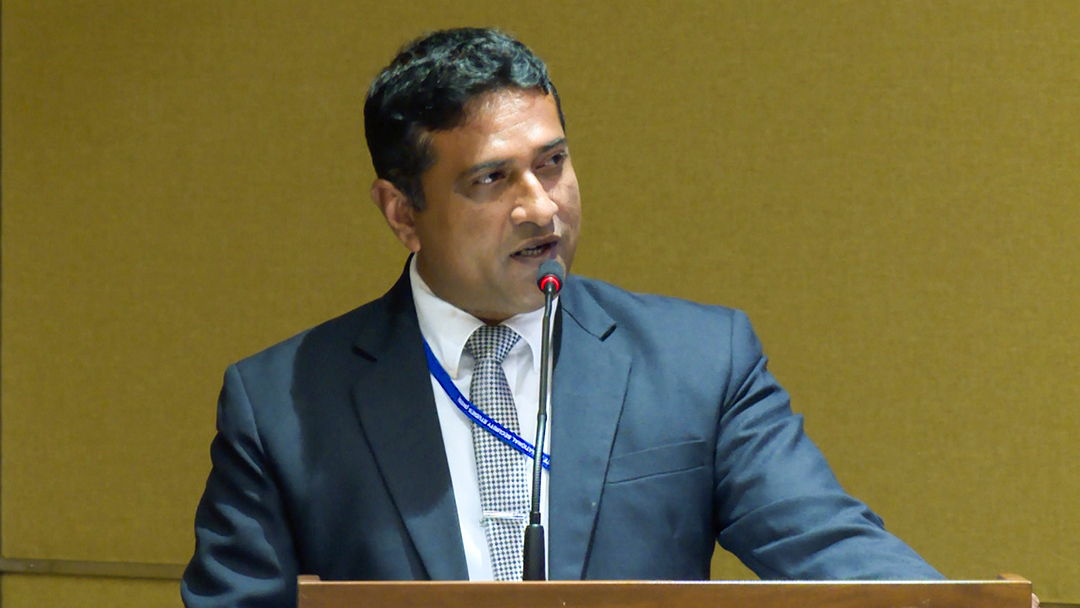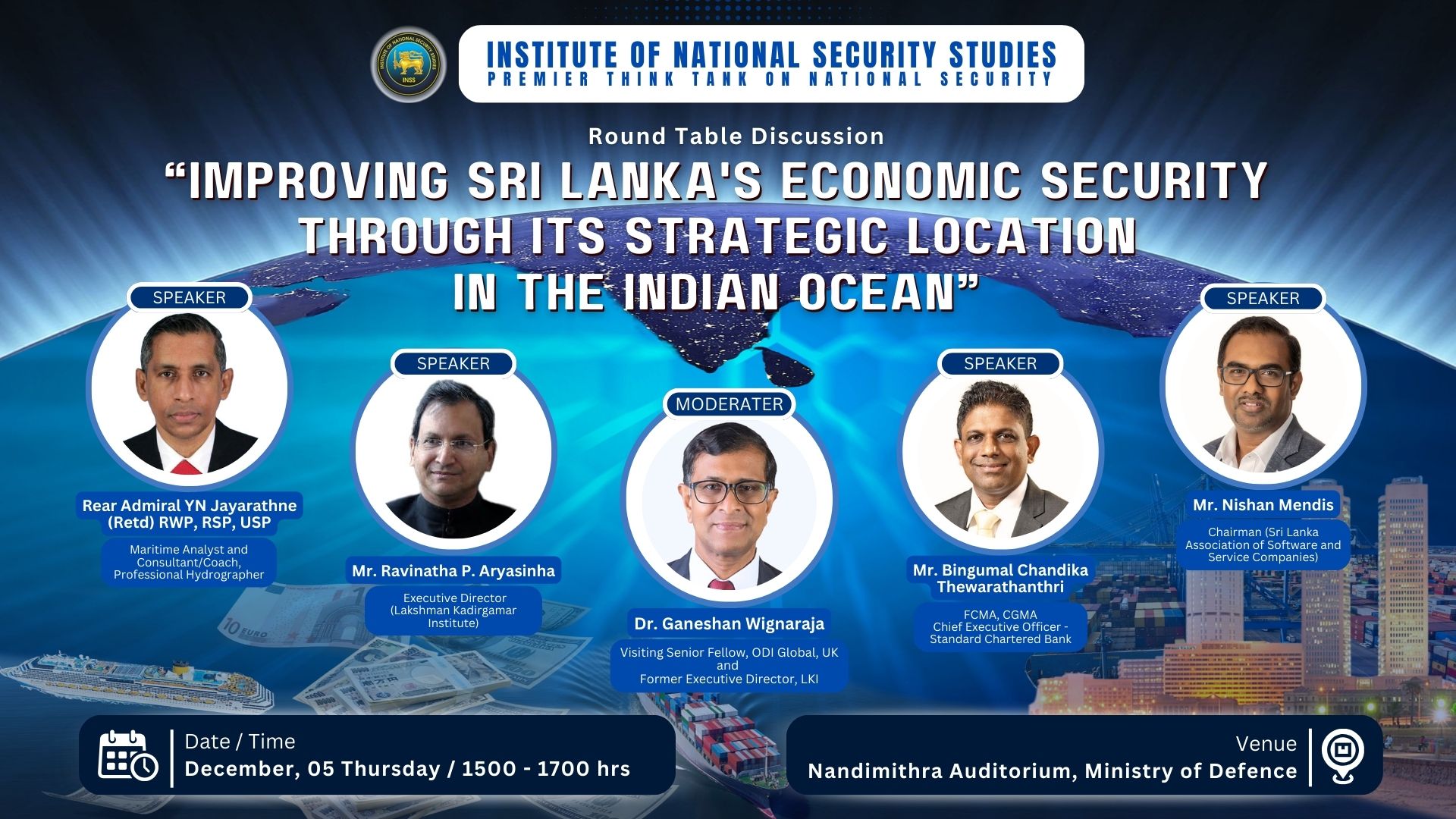
Post - Press Release
A roundtable discussion titled "Improving Sri Lanka's Economic Security Through Its Strategic Location in the Indian Ocean" was held on December 5 at the Ministry of Defence. The event was hosted by the Institute of National Security Studies (INSS).
The Secretary to the Ministry of Defence, Air Vice Marshal Sampath Thuyacontha (Retd) graced the occasion as the Chief Guest. The forum brought together leading experts to explore Sri Lanka's potential to harness its unique geographical position for economic growth and resilience.
Overlooking Director General of the INSS and Director of Media/Spokesperson of the Ministry of Defence Colonel Nalin Herath welcomed the Chief Guest and the distinguished panel of speakers.
The session, moderated by Dr. Ganeshan Wignaraja, Visiting Senior Fellow at ODI Global in the UK, featured a diverse panel of experts who shared valuable insights into Sri Lanka’s strategic and economic trajectory. Rear Admiral Y.N. Jayarathne (Retd) highlighted the need for modernizing maritime infrastructure by enhancing port capabilities and adopting innovative technologies to improve efficiency and global competitiveness. This, he argued, would strengthen Sri Lanka's role as a regional transhipment hub.
The Executive Director of the Lakshman Kadirgamar Institute, Mr. Ravinatha P. Aryasinha, emphasized the importance of balancing relationships with global powers and participating in regional economic initiatives. He underscored how strategic geopolitical navigation could reinforce Sri Lanka's position in the region while fostering economic security.
The CEO of the Standard Chartered Bank, Mr. Bingumal Chandika Thewarathanthri, provided an in-depth analysis of the geopolitical challenges Sri Lanka faces in navigating global political shifts. Complementing these discussions, Chairman of the Sri Lanka Association of Software and Service Companies, Mr. Nishan Mendis, proposed a vision for expanding regional digital connectivity. He outlined how integrating air, maritime, and digital networks could position Sri Lanka as a comprehensive regional hub, boosting economic resilience.
The discussion underscored the critical importance of Sri Lanka's strategic location in the Indian Ocean, situated along vital East-West maritime trade routes. Panelists collectively emphasized the need for a cohesive national strategy to maximize Sri Lanka's economic security. Key strategies highlighted included modernizing maritime infrastructure by enhancing port capabilities and adopting innovative technologies to improve efficiency and global competitiveness. Expanding regional connectivity was emphasized, focusing on integrating air, maritime, and digital networks to position Sri Lanka as a comprehensive regional hub. Likewise, cutting red tape and digitisation of government services was important to attract local and foreign investors. Additionally, fostering sustainable blue economy initiatives, such as prioritizing sustainable fisheries, marine tourism, and offshore energy exploration, was recognized as essential to diversifying economic streams. Lastly, strategic geopolitical navigation, balancing relationships with global powers and participating in regional economic initiatives like BIMSTEC and IORA, was underscored as critical for ensuring Sri Lanka's long-term economic resilience.
The panelists called for robust policy reforms, public-private partnerships, and investments in innovation to drive long-term growth and resilience in Sri Lanka as it seeks to prosper.


